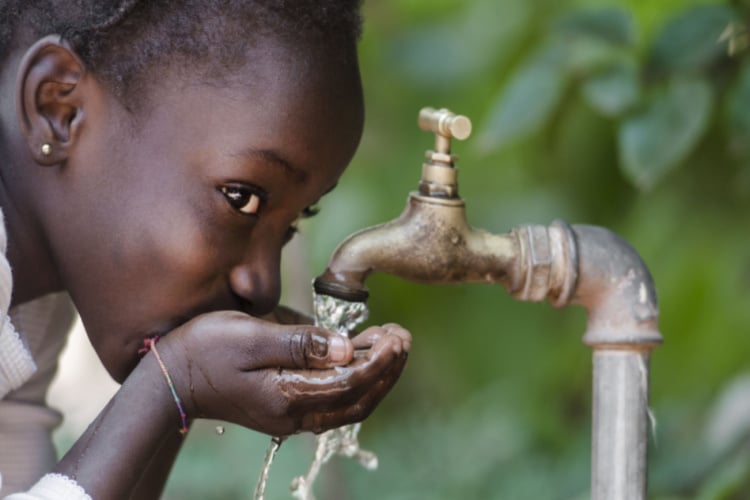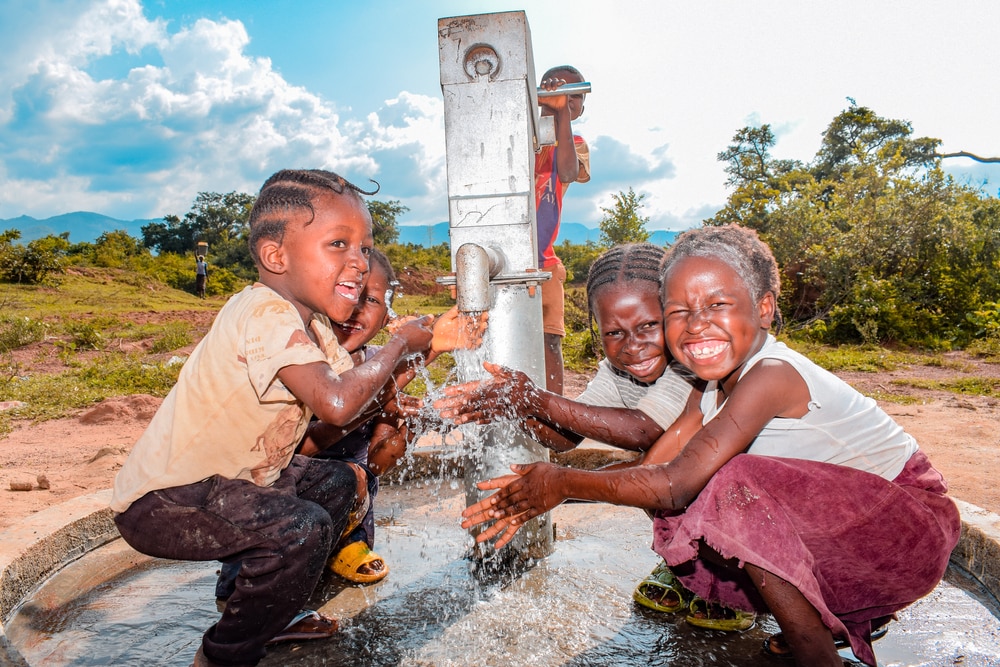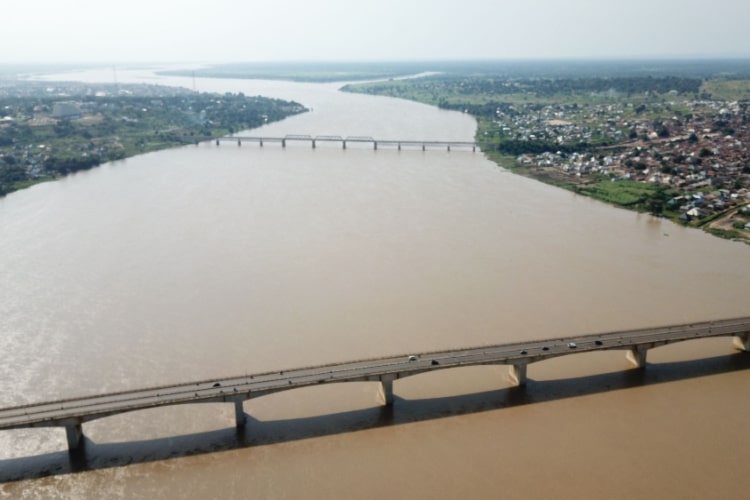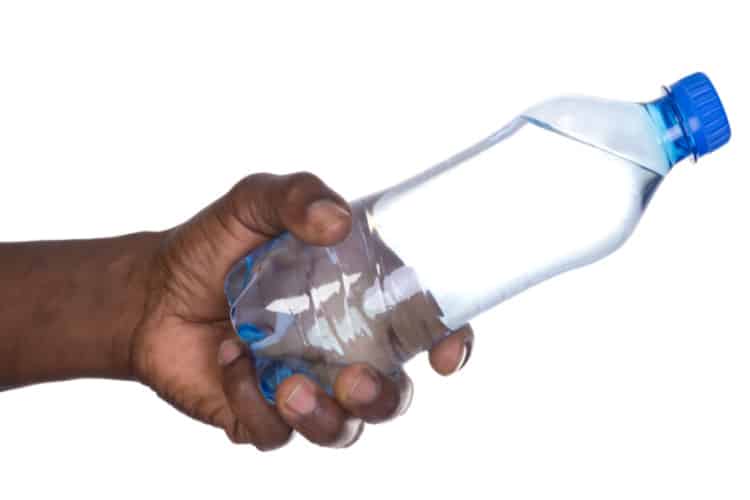Whether you live in Nigeria or are just visiting, you may be curious about the quality of the water you consume daily. As it turns out, your source of hydration could also be a reason for danger.
In this article, we’ll discuss:
- Source of Nigeria’s tap water
- The risks of drinking tap water in Nigeria
- Top cities with cleanest tap water in Nigeria
- What to do if your water quality is bad
Is Nigeria Tap Water Safe to Drink?
Access to clean, drinkable tap water is scarce in Nigeria. The tap water is not safe to drink but can be used for other human consumption like cooking and showering.
According to a 2021 Water Sanitation and Hygiene National Outcome Routine Mapping (WASHNORM) report by Nigeria’s federal government and UNICEF, only 13% of all Nigerians have access to safely-managed drinking water services. Wealthy urban populations have the most access to safe drinking water.
Access to services supplying unsafe drinking water is more widespread, however; the 2021 WASHNORM report notes that 67% of the total Nigerian population uses basic (i.e. not safely managed) water supply services.

Of all Nigerians who have access to water supply services, only 11% receive pipe-borne water. A mere 4% get their drinking water from a piped source on their property, like a sink tap.
Piped water sources are far more common in the affluent parts of cities than in poor and rural communities.
Even those Nigerians who can access pipe-borne water often turn to other sources of drinking water, as they cannot trust their taps to reliably provide them with hydration. Only 16% of such households reported that they always receive enough water from public utilities connections or taps, according to the 2021 WASHNORM report. One out of ten households reported never receiving a single drop of water from their taps.
Many city-dwelling Nigerians also reported that they avoid drinking tap water because they do not trust it to be safe. They have a good reason not to: approximately 41% of tap water supplied by urban water utilities contains significant levels of thermotolerant coliform bacteria like E. coli, indicating contamination by pathogens (disease-causing organisms) from fecal pollution.

Without widespread access to safe drinking water, far too many Nigerians inevitably suffer from waterborne diseases like cholera, dysentery, and typhoid.
Pathogens are not the only dangerous pollutant lurking in Nigeria’s water supply. Numerous studies show that pollution from oil and gas extraction, landfill leachate, sewage infiltration, and other sources has contaminated much of Nigeria’s groundwater with toxic heavy metals like lead and barium.
Microplastics have also been found in some of Nigeria’s drinking water. Although the long-term health risks associated with the consumption of microplastics are still unclear, some researchers have raised concerns about their potential toxicity.
Is Nigeria’s Water Hard or Soft?
A lack of comprehensive water quality studies makes us unable to determine the general hardness or softness of Nigerian tap water. Households with access to piped water in their homes can install a water softener if their water is too hard.
The hardness of water depends on the proportion of dissolved minerals (primarily calcium and magnesium) that it contains.
Top 3 Nigeria Cities With the Cleanest Water
A dearth of data makes comparing the quality of water in Nigeria on a city-by-city basis difficult.
We cannot claim that any have particularly clean water, given the water crisis plaguing Nigeria as a whole. However, we do know enough to suggest that three Nigerian cities might offer better access to clean water than others.
1. Lagos
Lagos, the former capital of both Lagos State and Nigeria as a whole, is the largest city in the country and a major cultural, financial, and educational center. It is located in Nigeria’s southwestern region.
Although its poor suffer from a severe lack of potable water, Lagos’s business district and other affluent communities are likely to be better-hydrated, given that most of Nigeria’s clean water flows through wealthy urban areas.
2. Abuja
Abuja is Nigeria’s capital. It lies in the Federal Capital Territory, a state in the central region of Nigeria. As a planned capital, (i.e. a city that was planned, built and developed specifically to be a national capital), Abuja is famous for its well-organized infrastructure and its beautiful architecture.
As one of the wealthiest and most significant cities in Nigeria, Abuja’s more affluent areas are sure to have more access to clean water than most other parts of the country.
3. Port Harcourt
Port Harcourt is, as its name suggests, a port city—one of the nation’s largest. It is the capital of Rivers State, Nigeria’s second-wealthiest state after Lagos.
Port Harcourt’s status as one of Nigeria’s main industrial hub means that it is one of the more affluent parts of the country, so its richer residents are likely to have good access to potable water.
Also Read: 10 Countries With The Cleanest Water Ranked (Best and Worst)
Who Regulates Water in Nigeria?
Per the Water Resources Act of 1933, the Federal Ministry of Water Resources is solely responsible for the regulation of water resources in Nigeria.
The Ministry of Water Resources formulates national water policy and oversees the development of large-scale water infrastructure projects. Its twelve River Basin Development Authorities manage agriculture and water resources in their assigned regions.
State governments are responsible for providing potable water to their citizens through State Water Agencies, or SWAs. However, according to the 2021 WASHNORM report, only 28 out of 36 Nigerian states have an SWA, while only 16 of these SWAs are fully functional.
Scholars have pointed to Nigeria’s weak institutional and legal framework for water resources management as a major obstruction to efforts to improve access to safe drinking water. Strong, clear water resources policies are necessary to improve the situation.
Where Nigeria Gets Its Water From
Nigeria is very rich in freshwater resources, although poor management of these resources prevents its citizens from enjoying them fully.
Thanks to its many rivers, Nigeria has vast quantities of surface water. The Niger River runs through Nigeria and forms the Niger Delta as it flows into the ocean.
Nearly two-thirds of the country’s surface water drains into the Niger River Basin, making it an immensely important source of water for the country.

Nigeria’s other major rivers include the Benue River, the Hadejia River, and the Komadugu Gena River. This last river flows from Lake Chad, another important source of freshwater for the nation.
Nigeria also has a great deal of groundwater in basement complexes (crystalline rock fissures), sedimentary basins, and alluvial aquifers (shallow water deposits occurring in floodplains). Many Nigerians access this water through boreholes and tube wells.
Unfortunately, oil extraction and processing have seriously polluted much of Nigeria’s surface and groundwater resources, making it unsafe for consumption without purification. Surface water resources have also been contaminated by untreated industrial and municipal waste and agricultural runoff.
Is Drinking Bottled Water the Safest Option in Nigeria?
In the absence of adequate drinking water infrastructure, many Nigerians turn to packaged drinking water to meet their needs. In addition to commercially-bottled water, many Nigerians consume sachet water, or water packed in heat-sealed plastic bags.
A 2020 study found that bottled and sachet water are the two safest sources of hydration available to the Nigerian populace. Bottled water is the better option of the two, as sachet water is more likely to be contaminated by disease-causing microbes.

However, Nigerian bottled water is still not as safe as it should be. According to another study from 2020, both heavy metal contamination and microbial contamination were observed in samples of bottled water from most locations around the country.
Are Water Filters Necessary in Nigeria?
Given the lack of readily-available safe drinking water in Nigeria, it is wise for citizens and travelers alike to treat their water before consumption.
Water filtration systems can remove pathogens, heavy metals, and other contaminants from drinking water. The level of purification that filtration can achieve depends on the type of water filter used—and not all water filters are up to the task of cleaning drinking water in Nigeria.
For example, although activated carbon filters can take care of the heavy metal contaminants found in much of Nigeria’s groundwater, they cannot remove bacterial pathogens.
A water filter suitable for households and travelers in Nigeria would have to be highly effective at removing pathogens, heavy metals, and toxic chemicals.
Conclusion
Although Nigeria has plentiful water resources, most of its citizens lack reliable access to drinking water, and very few have the luxury of potable water from a tap. If they cannot treat their drinking water at the point of consumption, Nigerians face the risk of waterborne illnesses and heavy metal poisoning.
Wealthy urban communities tend to have better access to safely-managed drinking water supply services, although even they rely heavily on commercially-produced water to meet their needs.
Bottled water is the best drinking water option for Nigerians, but it is not always free from contamination. If you are traveling to or live in Nigeria, you must use a suitable filter or another point-of-consumption water treatment solution to ensure that your water is safe to drink.